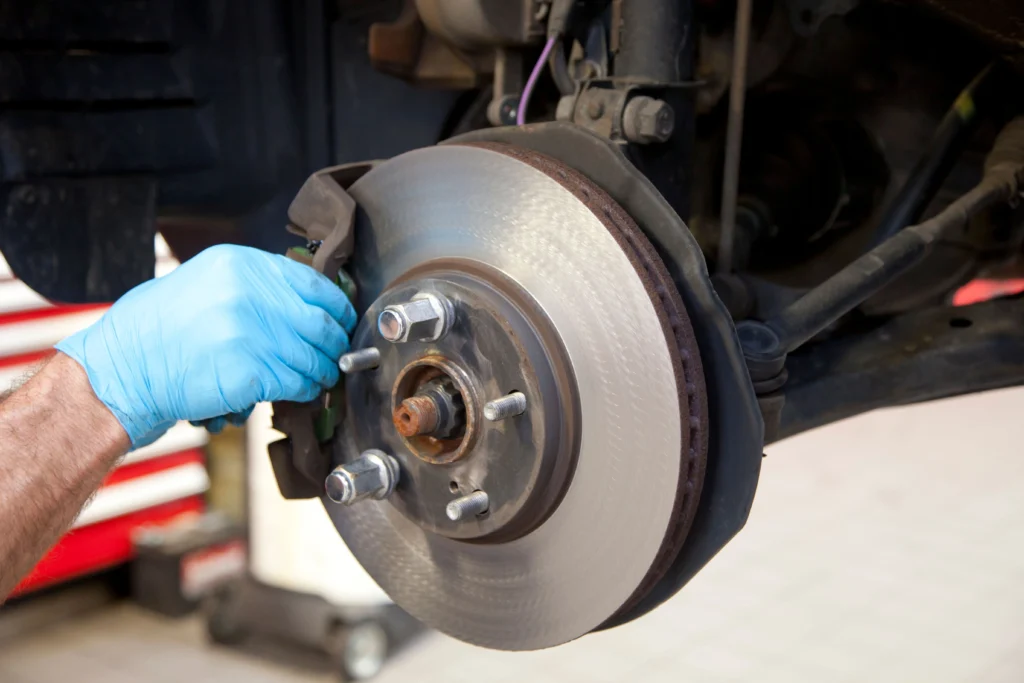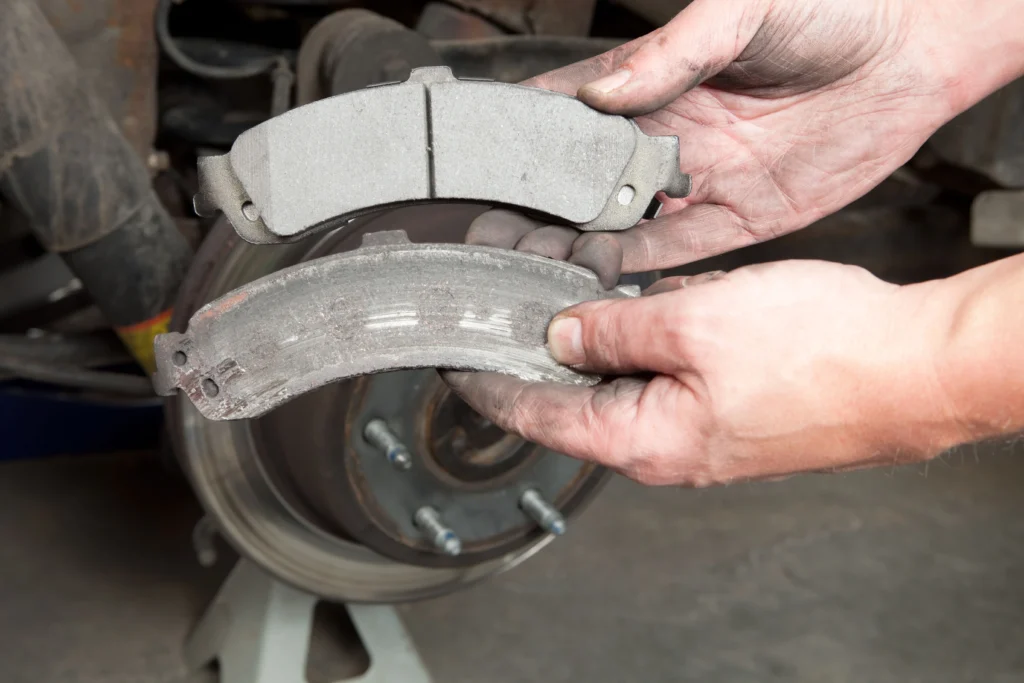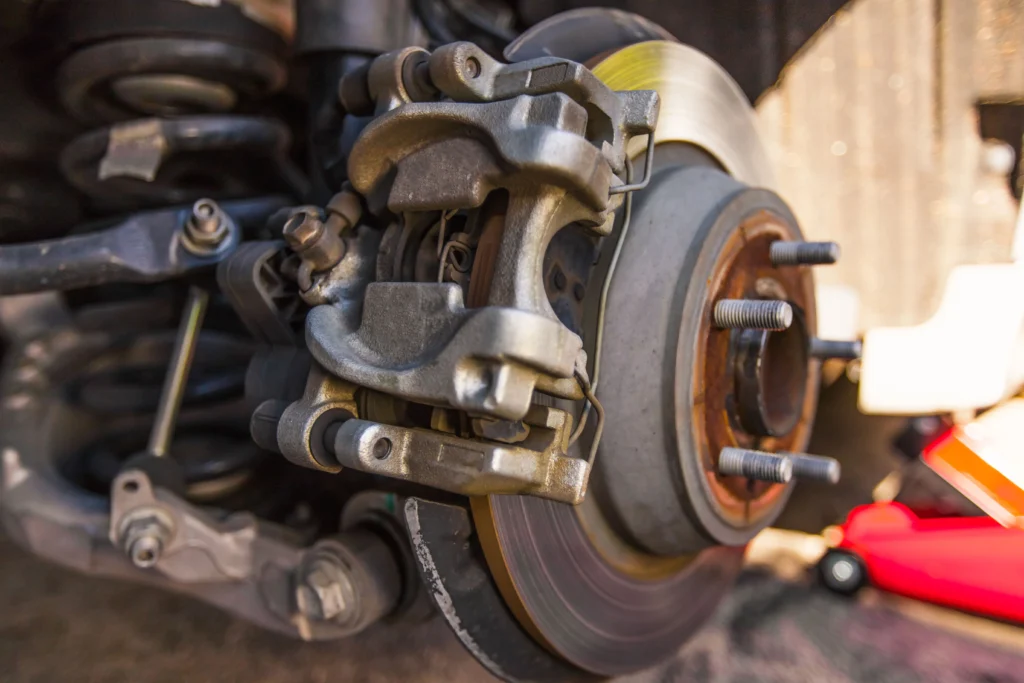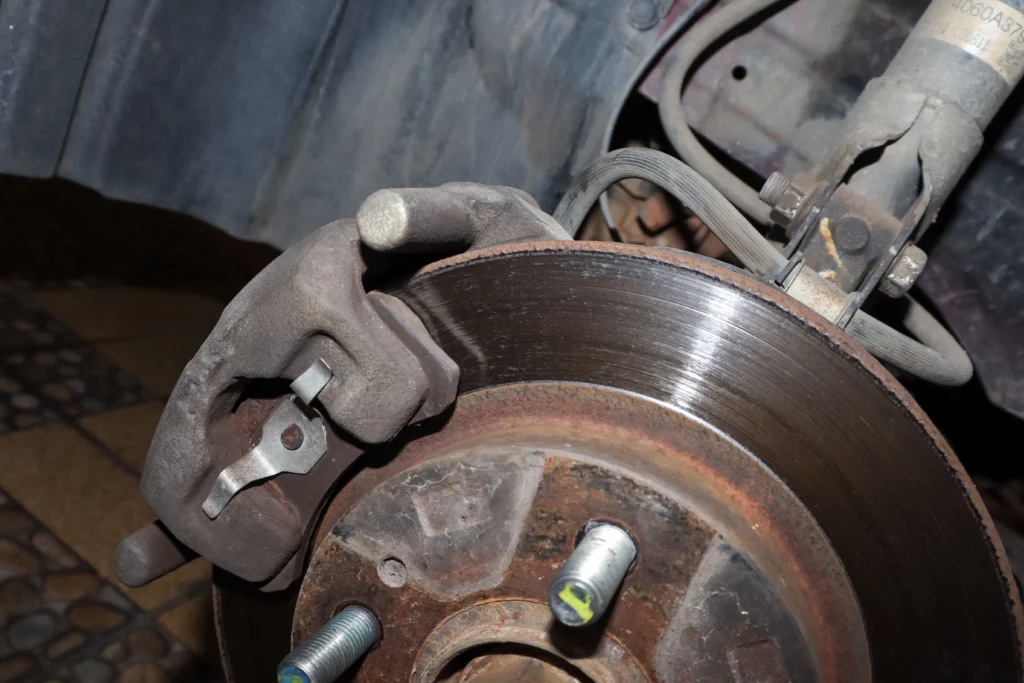Brake squeaking is a common issue that many drivers face, and it can be both frustrating and confusing. Understanding why brakes squeak and how to prevent it is crucial for maintaining your vehicle’s braking performance and safety. Sometimes, the only solution to brake squeaking is to replace both the brake discs and pads, while other times the problem might resolve on its own. Various factors can contribute to brake squeaking, making it essential to identify the cause and apply the appropriate fix. For essential tips on when to replace brake discs and pads, check out our guide here.
How do I know what is causing it, and how can I fix brake squeaking?

Step-by-Step Problem Solving
Start with the simplest and cheapest solution. Find a place where you can safely accelerate and brake sharply. Then, practice sharp braking, gradually increasing the force until you activate the ABS. For a detailed explanation of how ABS works and its importance, see our article here. Repeat this several times.
If that doesn’t work, try braking gently over a longer distance at higher speeds. Monitor the brake squeaking during this process to see if it changes. Does it weaken or intensify? Does the sound change after these braking attempts?
Additionally, observe how well the brakes perform. Are they functioning effectively despite the noise?
Sometimes, brakes squeak even when they’re working perfectly. This could happen due to a “mismatch” between the materials of the brake pad and disc. After ruling out other potential causes, you might need to replace the brake pads.
Issues can also arise if you install new pads and discs without following the proper break-in procedure. This step is crucial for optimal brake performance. Brake manufacturers often recommend specific methods for braking during the first few hundred kilometers.
Understanding why brakes squeak and how to prevent it can help you avoid long-term issues. To prevent squeaking, it’s essential to follow the manufacturer’s advice on braking techniques. Unfortunately, many drivers neglect this, leading to problems such as warped discs. For more on electronic brake force distribution (EBD) and its impact on braking, explore our guide here. However, the issue may be more complex, which we will discuss in another article.
Dust and Debris
Dust trapped between the disc and pad can also cause brake squeaking. This often occurs after off-road driving, especially in summer when fine sand particles can get lodged between the components.
In such cases, the problem might resolve itself over time. The noise may only occur during specific braking conditions, like sharp or gentle stops, or it may happen randomly. The same issue can also arise when driving through deep water at any time of the year.
Some drivers experience brake squeaking for a short period, only for it to disappear on its own, never to return. There’s no need to panic immediately when this happens.
Various other factors can cause brakes to squeak, and there are different tips on how to prevent it. However, be cautious to avoid causing more harm than good.
For instance, some suggest lightly sanding the brake pad surface with fine sandpaper. Others argue this method may not help or only provide a temporary fix, potentially damaging the disc. Abrasive material from the sandpaper could stick to the brake pad surface.
Identifying the underlying problem is key before attempting any solution. There’s no point in sanding anything before knowing the cause. But how can you identify the problem?
Some believe that corrosion on the disc’s edge may be the culprit in certain cases.
Worn-out Brake Pads

Certain brake pads have a metal component that intentionally squeaks to signal when they need replacing. If you’ve just installed new pads, this shouldn’t be the cause. Another issue is likely at play.
It’s wise to start documenting symptoms and other details immediately when you notice brake squeaking. Did it start after replacing pads, discs, or another part? Or perhaps after returning from vacation?
Do the brakes squeak constantly or occasionally? In what situations? How often? Does the sound change under certain conditions? The more detailed your description, the easier it will be for a mechanic to diagnose and resolve the issue.
Based on past experience, it’s best to act quickly so you can provide clear information to the mechanic about “what, when, and for how long.”
Problem with Brake Calipers?

Brake calipers sometimes stick, but this issue can vary. They might move stiffly in their guides or stick only in certain positions. The calipers could even return slowly to their original position.
This issue is not uncommon. A mechanic should clean and lubricate the calipers if necessary, replacing any parts that need attention. The person changing the pads (or pads and discs) should ensure everything is mounted correctly and adjusted so that the brakes function without issues.
If a problem arises, return to the place where the brakes were serviced to have the issue fixed. Many small details can cause problems if the proper procedure for replacing brake pads isn’t followed. These include ensuring the pad and disc fit together correctly, tightening screws, and checking and fixing the brake calipers.
Brake squeaking can be caused by various factors, and identifying the root cause is essential for an effective solution. For more insights into proper braking techniques that can help prevent such issues, check out our detailed guide on Efficient Braking: Why Brake First, Then Clutch?.
If we’ve overlooked anything, feel free to mention it in the comments.
Conclusion
Whether you’re solving the brake squeaking issue yourself or leaving it to a mechanic, be cautious to avoid turning a minor problem into an expensive repair.
There is no magical, universal solution for brake squeaking. The reasons for the noise can vary.
Ultimately, this is a job for a mechanic who has the time and expertise to address it, unless you have enough knowledge to handle replacing pads, discs, etc., on your own.
